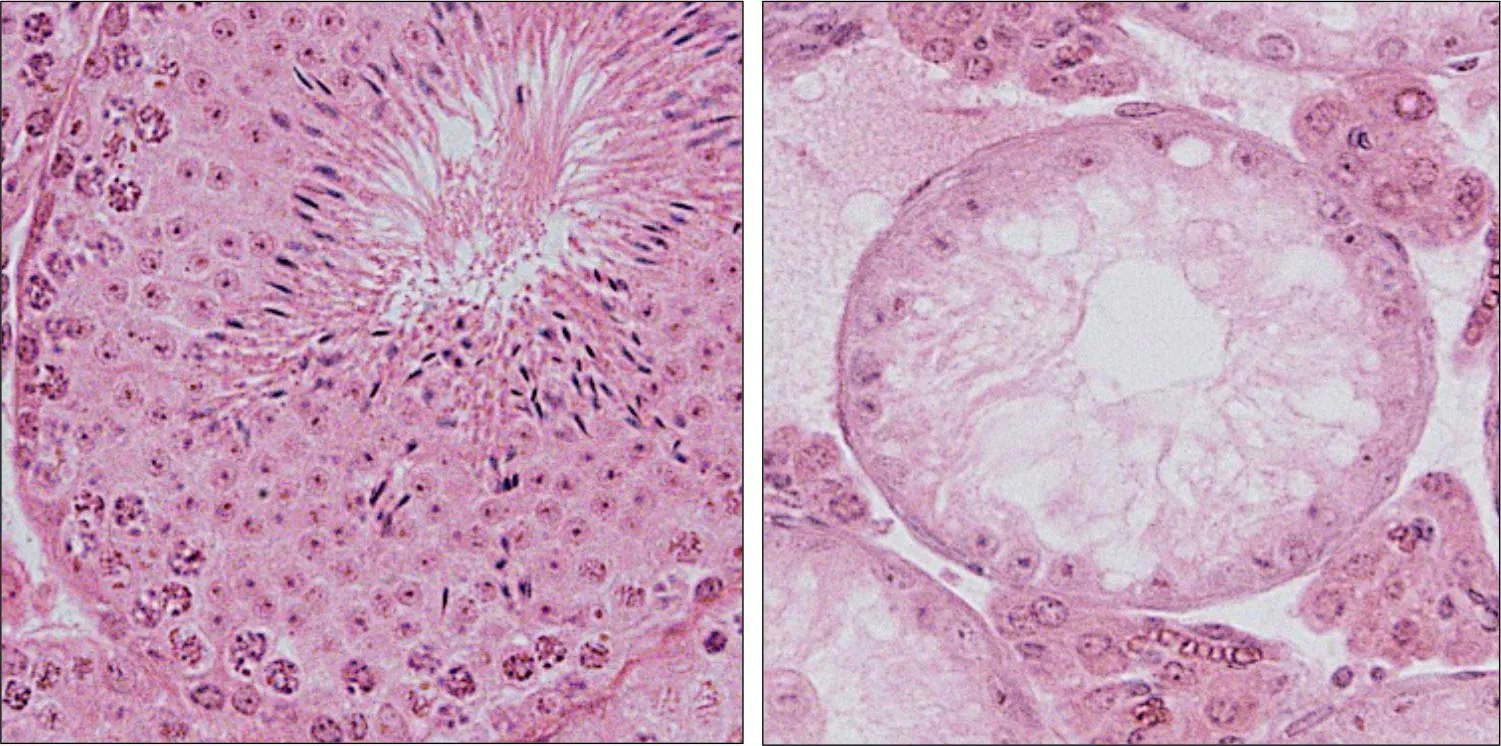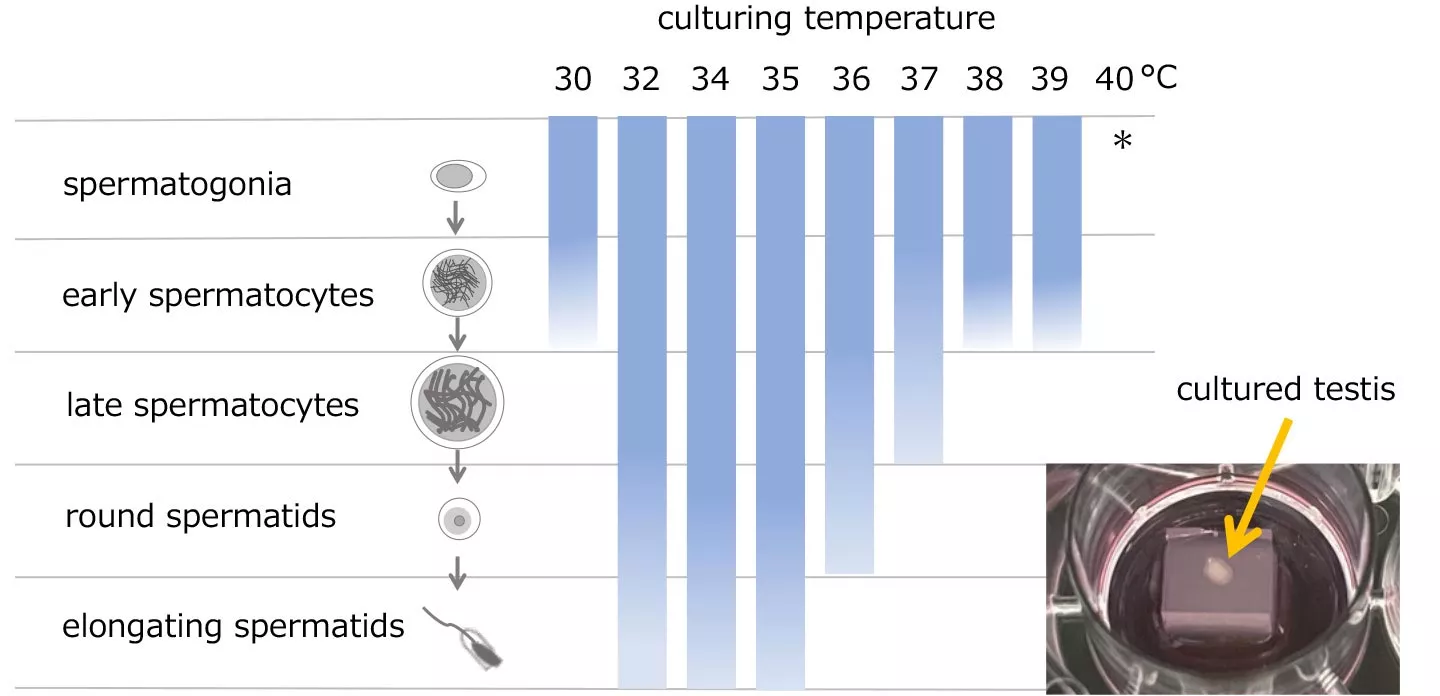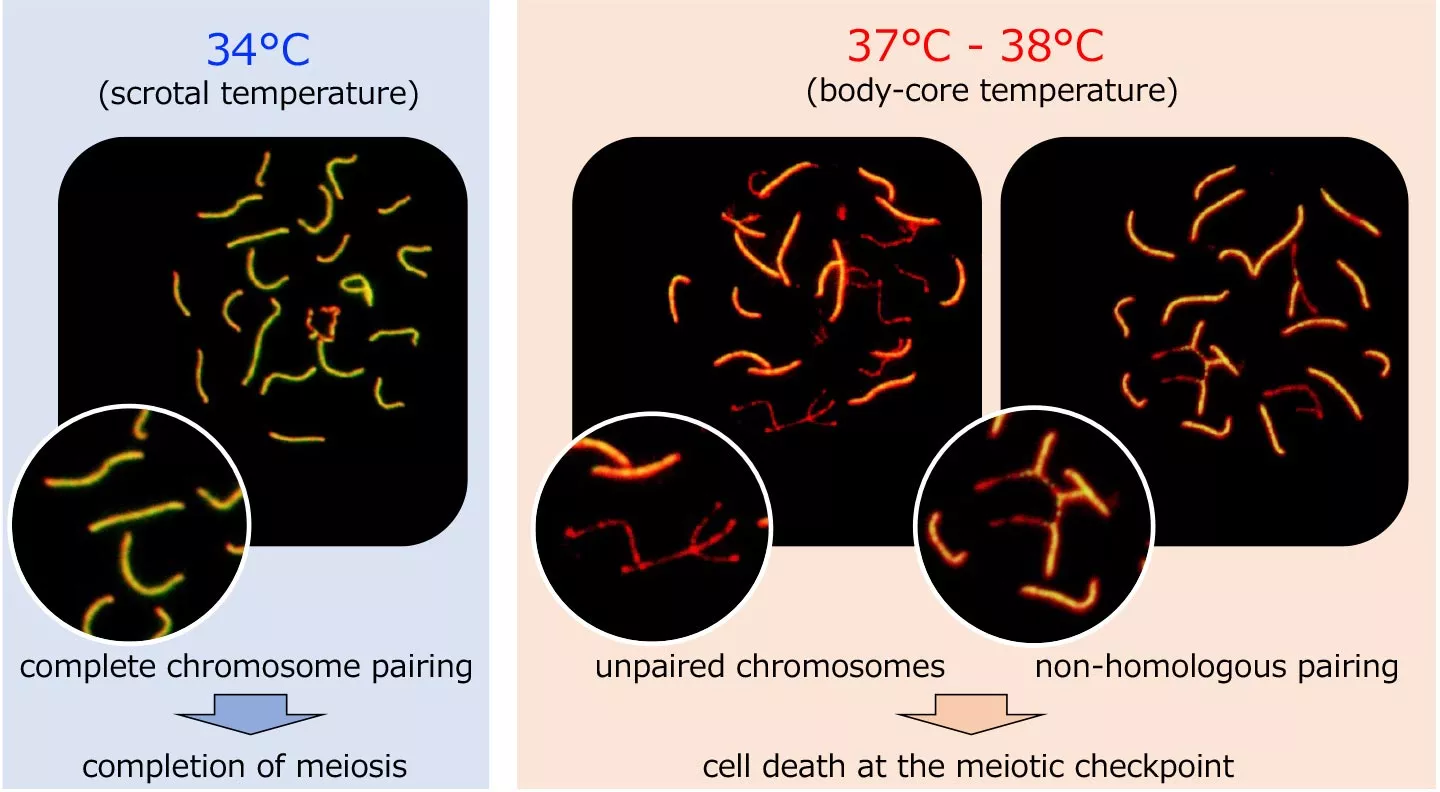The testicles of most mammals are cooled in the scrotum, and elevated testicular temperature can lead to sperm formation failure and male infertility A team led by Shosei Yoshida of Japan's National Institute of basic biology detailed the process using organ cultures and found that sperm formation was impaired in multiple steps in a subtle temperature dependent manner.

Although sperm formation is completed at 34 ° C (scrotal temperature), heating to 37-38 ° C (abdominal temperature) can seriously affect meiosis - the process of separating homologous chromosomes into haploid sperm, and cell death occurs in damaged cells. This study proves the practicability of organ culture, which will promote the study of thermal fragility during spermatogenesis.

Many studies have used animal models to increase testicular temperature to study the thermal damage of sperm formation, such as surgically moving the testis to the abdomen. However, the actual testicular temperature could not be controlled in these experiments. In addition, the influence of extratesticular factors, such as endocrine and nervous system, cannot be ruled out.
To overcome these limitations, the team used a testicular organ culture environment that supports complete sperm formation in a incubator, developed by Takehiko Ogawa of Yokohama City University and colleagues. By culturing mouse testes at different temperatures, the researchers found that sperm formation failed in multiple steps (such as meiosis progression and haploid cell generation and transformation), and showed a distinct temperature dependence between 30 ° C and 40 ° C.
"We didn't expect that this well-known phenomenon is a subtle combination of multiple temperature dependent events. This discovery can only be achieved through the organ culture system," Yoshida said.

The team further found that meiosis, the process of separating homologous chromosomes into haploid sperm, was seriously affected at 37-38 ℃. Specifically, the repair of DNA double strand breaks and the pairing of homologous chromosomes are necessary conditions for normal chromosome separation, and they are all affected. Damaged cells die through surveillance mechanisms or checkpoints. Kodai Hirano, the main contributor of the study, said: "surprisingly, basic processes such as meiosis are very vulnerable under normal core temperature. Through the comprehensive function of scrotum and checkpoint, only sperm developed at low temperature can fertilize eggs and produce the next generation. Key issues for future research will include the molecular mechanism of heat sensitivity and the biological significance of low temperature in sperm production."
The study was published in communications biology.